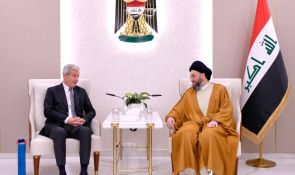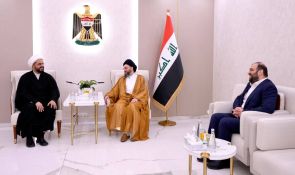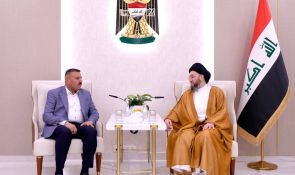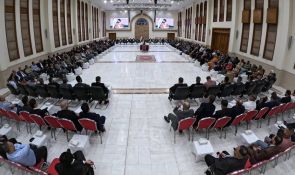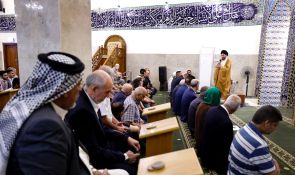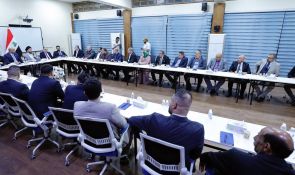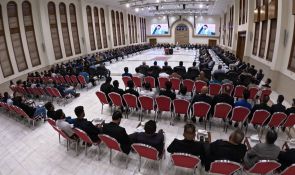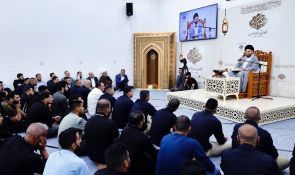Sayyid Ammar al-Hakim: political stability is the key to the current crisis and we are counting on the unbiased cross-components political bloc to achieve it
Sayyid Ammar al-Hakim, chairman of the Islamic Supreme Council of Iraq considered the political stability the to key of all keys for political crisis resolution, relying on an unbiased cross-component political bloc to achieve political stability, noting at the same time that Iraq suffers from a lack of strategic decision-room.
\r\nthis was addressed by his Eminence in his Baghdad office, dewan of the political elites Saturday, 28.05.2016.
\r\nhis eminence stressed the importance of a the availability of an inclusive reformation project which is based on a clear vision, assuring that reformations is a demanded principle and agreed by everyone but lack a roadmap, pointing out that the position of a minister politician is a result of the political maturity, noting that the ministerial reshuffle is a single term of the reformation vocabulary, calling to focus on the pros of this process and circulate them, and to put an end to the government and parliament crisis.
\r\nIn respect of the battle of Fallujah, His Eminence praised the victories achieved on the field, noting that the battle have popular support from all the components as well as regional and international support because of everyone is aware that ISIS is a cross-border threat, explaining that the Religious Authority had thoroughly addressed the issues stating that the reformation battle is a battle of fate and The battle against terrorism is a battle of existence.
\r\nWith regard to the Paris conference and who call themselves Iraqi opposition, Sayyid Ammar al-Hakim lessened the value of this conference indicating that the attendees do not represent anyone of the Iraqi people, noting that the conference cannot be compared to the conferences of the Iraqi opposition before the fall of the former regime because the powers that attended at the time were active figures in the Iraqi society and this is what was evidenced through the phase after the fall of the former regime.


